Bb5.8
Those who had travelled along the path of these ideas
had all tried to leave Signs behind for those who would
try to advance along the same 'ideological path' later. Ideas are pictures, not
bare words as such, and they should not be forgotten.

... 'Most ingenious Thoth', said the
god and king Thamus, 'one man has the ability to beget
arts, but the ability to judge of their usefulness or
harmfulness to their users belongs to another; and now
you, who are the father of letters, have been led by
your affection to ascribe to them a power the opposite
of that which they really possess.
For this invention will produce
forgetfulness in the minds of those who learn to use it,
because they will not practise their memory. Their trust
in writing, produced by external characters which are no
part of themselves, will discourage the use of their own
memory within them. You have invented an elixir not of
memory, but of reminding; and you offer your pupils the
appearance of wisdom, not true wisdom, for they will
read many things without instruction and will therefore
seem to know many things, when they are for the most
part ignorant and hard to get along with, since they are
not wise, but only appear wise.' ...
|
Jan 17
(355 + 27 = 382) |
18 |
19 (384) |
|
Solstice (382 - 27 = 355) |
'Dec 22 (356 = 382 - 27) |
23 |
|
HELIACAL STARS: |
|
ε Pavonis, θ Sagittarii (302.3), γ Sagittae
(302.5), μ Pavonis (302.7) |
τ Aquilae
(303.8) |
20h (304.4)
304.4 = 118.4 + 186.0
η Sagittae (304.2),
δ Pavonis (304.4)
*263.0 = *77.0 + *186.0 |
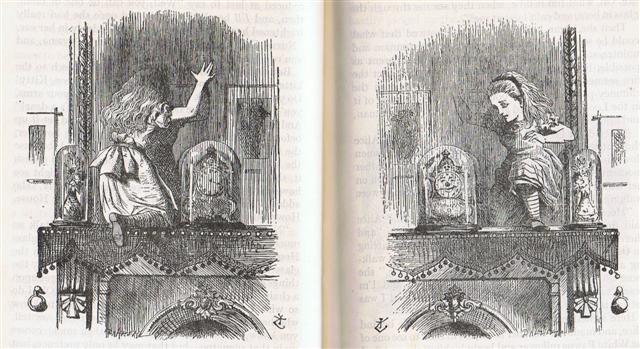
Alice exhibited her upraised right arm with
empty hand when pushing on from the night side,
and at her entrance into the side of the light
she had turned her hand into a convex form, a
pattern opposite to that of the Mad Hatter:
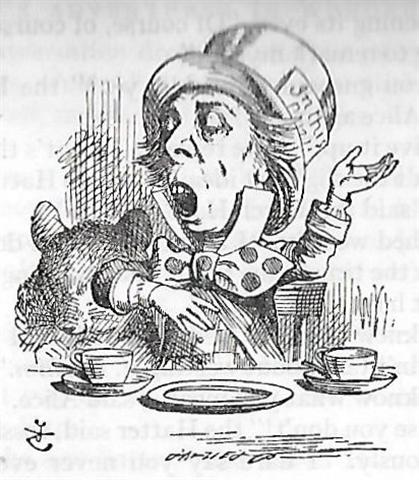
'Twinkle, twinkle, little
bat!' // How I wonder what you're at!' |
 |
 |
 |
|
Bb5-9
(172 → Solstice) |
Bb5-10 |
Bb5-11 (595) |
|
mai tae tuki to haga -
mai tae oho te rima |
mai tae te vere ki te
henua - ko te rima e oho ki to kava |
eko
te tagata kua hakahonui |
|
Rima.
1. Hand, also, but improperly,
fingers, forearm; te ko mu'a o te rima,
palm of the hand; te ko tu'a o te
rima, back of the hand; rima
hakaturu, generous, liberal, munificent;
tagata rima pu'a, helper; rima
hakakau, generous hands, open-handed
person; rima matu'a neanea, thumb. 2.
Fifth; e-rima, ka-rima, five. Vanaga.
1. Five. P Mgv., Ta.: rima, id. Mq.:
ima, id. 2. Arm, hand; rima atakai,
obliging, kind, generous, a gift, rima
tuku, elbow, rima omo,
infidelity, faithless, unfaithful, rima o
te kahu, sleeve, kakari rima,
wrist. P Pau.: rima, hand, arm. Mgv.:
rima, hand, arm, paw, finger. Mq.:
ima, hand, arm. Ta.: rima, arm,
hand, finger. Rimahakaviriviri, fist,
to clench the fist, a blow of the fist.
Rimahati, one-armed. Rima ko manaroa,
little finger T. Rimamatua neanea,
thumb. Rimaroaroa tahaga, middle
finger T. Rimatitiri, to walk with
the hands behind the back. Rimaruru,
to clasp hands. Rimatuhi henna (?)
index finger T. Rimatuhi a hana,
finger ring T (? ring finger). 3. To lead
into error; rimaetua, supernatural,
Mq.: imaima, that which returns after
a man's death, Ta.: rimaatua, plague,
dissension, mortal illness. Churchill.
Vere. 1.
Beard, moustache (vede G); vere
gutu, moustache; verevere,
shaggy, hairy, tow, oakum. Mgv.: veri,
bristly, shaggy, chafed (of a cord long in
use). Mq.: veevee, tentacles. Ta.:
verevere, eyelash. 2. To weed (ka-veri-mai,
pick, cut-grass T); verevere, to
weed. P Mgv.: vere, to weed. Mq.:
veéveé, vavee, id. 3. Verega,
fruitful, valuable; verega kore,
unfruitful, valueless, contemptible, vain,
futile, frivolous; tae verega,
insignificant, valueless; mataku verega
kore, scruple. Mgv.: verega, a
design put into execution; one who is apte,
useful, having a knowledge how to do things.
4. Ta.: verevere, pudenda muliebria.
Ma.: werewere, id. (labia minora).
Churchill. Sa.: apungaleveleve,
apongaleveleve, a spider, a web. To.:
kaleveleve, a large spider. Fu.:
kaleveleve, a spider, a web. Niuē:
kaleveleve,
a cobweb. Nukuoro: halaneveneve,
a spider. Uvea: kaleveleve,
a spider. Mgv.: pungaverevere,
a spider. Pau.: pungaverevere,
cloth. Mg.: pungaverevere,
a cobweb. Ta.: puaverevere,
id. Mao.: pungawerewere,
puawerewere,
puwerewere,
a spider. Ha.: punawelewele,
a spider, a web. Mq.: pukaveevee,
punaveevee,
id. Vi.: lawa,
a fishing net; viritālawalawa,
a cobweb; butalawalawa,
a spider. Churchill 2.
Kava.
1. Sour; salty: vai kava,
saltwater, sea; te kava o te haíga,
acrid underarm smell; tagata kava -
tagata kakara i te kava, man with smelly
armpits. 2. He-kava te
haha, to be thirsty. 3. To turn sour, to
become embittered, bad-tempered, exasperated
(used with manava): tagata manava
kava, bad-tempered, angry man. Vanaga.
Bitter, salt; vai kava, brackish
water; hakakava, to embalm;
kavakava, acid, sharp, bitter, salt,
spiritous, vinegar, poisonous, disagreeable;
akavakava, to make sharp;
hakakavakava, to make acid. P Pau.:
kava, disagreeable to the taste;
kavakava, acid, sharp. Mgv.: kava,
to be bitter, sour, acid, salt. Mq.: kava,
bitter. Ta.: ava, bitter, acid, salt.
Kavahia: 1. Comfort, comfortable, to
feast; hakakavahia, comfort,
comfortable. 2. Repulsive (of food),
disgusted; hakakavahia, repulsion.
Kavakava, rib; moi kavakava, a
house god G. P Mgv.: vakavaka, the
breast. Mq.: vakavaka, vaávaá,
rib. Ma.: wakawaka, parallel ridges.
We shall need all the available material in
order to determine the germ sense of this
word. Sa.: va'ava'a, the breast-bone
of a bird; fa'ava'a, the frame as of
a slate. To.: vakavaka, the side.
Fu.: vakavaka, the side below the
armpit. Ha.: hoowaa, to make furrows.
In all these we may see the idea of ridge or
depression, or of both, as primal (Rapanui,
Samoa, Marquesas, Maori, Hawaii), and as
secondary the part of the body where such
appearances is common (Mangareva, Tonga,
Futuna). Churchill. Mgv.: kava, the
pepper plant and the drink made therefrom.
Ta.: ava, id. Mq.: kava,
id. Sa.: 'ava, id. Ma.: kawa,
a pepper. Kavakava, a fish. Sa.:
'ava'ava, id. Kavapui, a tree.
Ta.: avapuhi, a fragrant plant. Mq.:
kavapui, wild ginger. Sa.: 'avapui,
id. Ha.: awapuhi,
id. Churchill. Mq.: ava, a small fish
of sweet water. Sa.. 'ava'ava, a
small fish. Ha.: awa, a fish.
Kakava, burnt. Sa.: 'a'ava, very
hot. Churchill.
Honui. 1. Person
worthy of respect, person of authority. 2.
Livelihood, heirloom, capital;
ka moe koe ki toou hônui, you must
marry to ensure your livelihood (said to a
little girl); he hônui mo taaku poki,
this is the heirloom for my son. Vanaga.
Great (hoonui); honui, chief
T.; tagata hoonui, personage;
hakahonui, to praise, to commend.
Churchill. |
|
RIGHT
ASCENSION DAYS AT THE FULL MOON: |
|
DRUS (Hard)
= χ Carinae
(119.9) |
ω Cancri
(120.2) |
8h (121.7)
χ
Gemini (121.0),
NAOS (Ship) =
ζ
Puppis
(121.3) |
 |
|
July 18 (172 + 27) |
19 (200) |
20 |
|
Solstice |
'June 22
(200 - 27 = 173) |
23 |
|
MAY 15
(500) |
16 (136 =
200 - 64) |
17 |
|
... As
has already been mentioned, the Delphians
worshipped Dionysus once a year as the
new-born child, Liknites, 'the Child
in the Harvest Basket', which was a
shovel-shaped basket of rush and osier used
as a harvest basket, a cradle, a manger, and
a winnowing-fan for tossing the grain up
into the air against the wind, to separate
it from the chaff. The worship of the Divine
Child was established in Minoan Crete, its
most famous early home in Europe. In 1903,
on the site of the temple of Dictaean Zeues
- the Zeus who was yearly
born in Rhea's cave at
Dicte near Cnossos, where Pythagoras spent
'thrice nine hallowed days' of his
initiation - was found a Greek hymn which
seems to preserve the original Minoan
formula in which the gypsum-powdered,
sword-dancing Curetes, or tutors, saluted
the Child at his birthday feast. In it he is
hailed as 'the Cronian one' who comes yearly
to Dicte mounted on a sow and escorted by a
spirit-throng, and begged for peace and
plenty as a reward for their joyful leaps
...
 |
But now we have to move on, beyond the
ζ star in Argo
Navis when the Full Moon was at 8h (8 / 24 * 366 = 122).
|
Manacle |
ziqq |
Phoenician zayin |
 |
Greek
zeta |
Ζ (ζ) |
|
...
Zeta (uppercase Ζ,
lowercase ζ;
Greek: ζήτα
... is the sixth letter of the Greek
alphabet. In the system of Greek numerals,
it has a value of 7. It was derived from the
Phoenician letter Zayin. Letters that
arose from zeta include the Roman Z and
Cyrillic З ...
Zayin
(also spelled Zain or Zayn or
simply Zay) is the seventh letter of
many Semitic abjads ... It represents the
sound [z]. The
Phoenician letter appears to be named after
a sword or other weapon. (In Biblical
Hebrew, 'Zayin' means sword, and the
verb 'Lezayen' means to arm. In
modern Hebrew, 'zayin' means penis
and 'lezayen' is a vulgar term which
generally means to perform sexual
intercourse and is used in a similar fashion
to the English word fuck, although the older
meaning survives in 'maavak mezuyan'
(armed struggle) and 'beton
mezuyan' (armed, i.e., reinforced
concrete). The Proto-Sinaitic glyph
according to Brian Colless may have been
called ziqq, based on a hieroglyph
depicting a 'manacle'.

 |
Here perhaps there might have been (after 'the harvest
basket = cradle') a week for a 'funeral feast':
... The Celtic year was divided into two halves with the
second half beginning in July, apparently after a
seven-day wake, or funeral feast, in the oak-king's
honour ...
|
Jan 20 (385) |
21 |
22 |
23 (361 + 27) |
24 |
25 (390) |
26 (181 + 210) |
|
X-mas Eve |
'Dec 25 |
26 (360) |
27 (19 * 19) |
28 |
29 (3 * 121) |
30 (348 + 16) |
 |
 |
 |
 |
 |
 |
 |
|
Bb5-12 (175) |
Bb5-13 |
Bb5-14 (177) |
Bb5-15 |
Bb5-16 (600) |
Bb5-17 |
Bb5-18 (181) |
| mai tupu ona
poporo |
i haga
o tere |
ko te
manu mata
e toru |
kua ui ki te
maitaki |
kua vero
hia ia |
ko te
tagata ra |
- |
|
Ona. 1.
Ta.: ona, he, she. Sa.: ona, his, hers. Ma.: ona,
id. 2. Ta.: ona, rich. Mq.: ona, id. Churchill.
Tere. 1.
To run, to flee, to escape from a prison. 2. To sail a boat (also:
hakatere); tere vaka, owner of a fishing boat. 3.
(Deap-sea) fisherman; tere kahi, tuna fisherman; tere
ho'ou, novice fisherman, one who goes deap-sea fishing for the
first time. Penei te huru tûai; he-oho te tere ho'ou ki ruga ki
te hakanonoga; ana ta'e rava'a, he-avai e te tahi tagata tere vaka i
te îka ki a îa mo hakakoa, mo iri-hakaou ki te hakanonoga i te tahi
raá. The ancient custom was like this: the novice fisherman
would go to a hakanonoga; if he didn't catch anything,
another fisherman would give him fishes to make him happy so he'd go
again one day to the hakanonoga (more distant fishing zones
where larger fishes are found). Vanaga. To depart, to run, to take
leave, to desert, to escape, to go away, to flee, fugitive, to sail,
to row, to take refuge, to withdraw, to retreat, to save oneself;
terea, rest, defeat; tetere, to beat a retreat, to go
away, refugee; teretere, to go away, hurrah; hakatere,
to set free, to despatch, to expel, to let go, to liberate, to
conquer, helmsman; terega, departure, sailing; teretai,
a sailor. Churchill. Mata. 1. Tribe, people;
te mata tûai-era-á, the ancient tribes. 2. Eye; mata ite,
eyewitness. 3. Mesh: mata kupega. 4. Raw, uncooked, unripe,
green, matamata, half-cooked, half-ripe. Kahi matamata,
a tuna fish. Vanaga. 1. The eye; mata neranera, mata
kevakeva, mata mamae, to be drowsy; mata keva,
mataraparapa, matapo, blind; mata hakahira, squint
eyed; mata pagaha, eye strain. 2. Face, expression, aspect,
figure, mien, presence, visage, view; mata mine, mata
hakataha, mata pupura, mata hakahiro, to consider.
3. Raw, green, unripe. 4. Drop of water. 5. Mesh; hakamata,
to make a net. 6. Cutting, flint. 7. Point, spear, spike (a fish
bone). 8. Chancre. Matamata, sound of water. Churchill. There
is a wide range of significations in this stem. It will serve to
express an opening as small as the mesh of a net or as large as a
door of a house; it will serve to designate globular objects as
large as the eye or as small as the bud on a twig or the drop of
rain, and designating a pointed object it answers with equal
facility for the sharpened tip of a lance or the acres of a
headland; it describes as well the edge of a paddle or the source
from which a thing originates. Churchill 2. Matá. Black
obsidian spear points, all belonging to the Late Period which began
ca 1680. Heyerdahl 3.
Ui. To ask. Vanaga.
Û'i. To look, to look at (ki);
e-û'i koe! look out! Vanaga.
Ui. 1. Question, to interrogate, to ask (ue).
Uiui, to ask questions.
2. To spy, to inspect, to look at, to perceive;
tagata ui, visitor.
Churchill. |
|
HELIACAL STARS: |
|
SHANG
WEI (Higher Guard) =
κ
Cephei
(305.2),
θ
Sagittae (305.4),
TSEEN FOO (Heavenly
Raft) =
θ
Aquilae (Ant.)
(305.6), ξ Capricorni (305.8)
*264.0 = *305.4 - *41.4 |
TSO KE (Left Flag) =
ρ
Aquilae
(306.3) |
GREDI (Goat) =
α
Capricorni
(307.2),
σ
Capricorni (307.5),
ALSHAT (The Sheep) =
ν
Capricorni
(307.9) |
Al Sa’d al Dhabih-20 (Lucky One of the
Slaughterers) /
Ox / Heard Boy (Buffalo)
DABIH =
β
Capricorni
(308.0),
κ
Sagittarii (308.1),
SADIR
(Hen's Breast) = γ
Cygni (308.4),
PEACOCK
= α
Pavonis
(308.7)
*267.0 = *308.4 - *41.4 |
OKUL =
π
Capricorni
(309.6),
BOS =
ρ
Capricorni
(309.9)
ARNEB (α Leporis)
MINTAKA (δ
Orionis) |
ο
Capricorni (310.2),
θ
Cephei (310.5)
HEKA (λ Orionis)
ALNILAM (ε
Orionis) |
ROTTEN
MELON = ε
Delphini,
φ
Pavonis (311.2),
η
Delphini (311.4),
ζ
Delphini,
ρ
Pavonis (311.7)
PHAKT (α
Columbae)
ALNILAK (ζ
Orionis)
*270.0 = *311.4 - *41.4 |
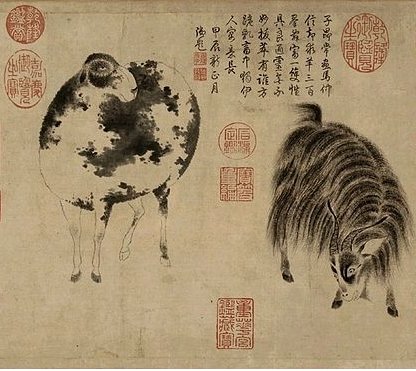 |
|
RIGHT
ASCENSION DAYS AT THE FULL MOON: |
|
ρ
Puppis (122.0),
HEAP OF FUEL =
μ
Cancri
(122.1),
ζ
Monocerotis (122.3), ψ
Cancri (122.6),
REGOR (Roger backwards) =
γ
Velorum
(122.7) |
TEGMINE (The Cover) =
ζ
Cancri
(123.3) |
AL TARF
(The End) = β
Cancri
(124.3)
RAS
ALGETHI (α Herculis) |
χ
Cancri (125.2),
BRIGHT
FIRE = λ
Cancri (125.4)
*84.0 = *125.4 - *41.4 |
AVIOR =
ε
Carinae (126.4),
φ
Cancri (126.8)
*85.0 = *126.4 - *41.4 |
ο Ursae Majoris (127.4)
*86.0 = *127.4 - *41.4 |
Pushya-8 (Nourisher)
υ
Cancri (128.1), θ
Cancri (128.2) |
|
"June 10 |
11 |
12 |
13 (164) |
14 |
15 |
16 |
|
... Midsummer is the flowering season of the oak, which is the tree
of endurance and triumph, and like the ash is said to 'court the
lightning flash'. Its roots are believed to extend as deep
underground as its branches rise in the air - Virgil mentions this -
which makes it emblematic of a god whose law runs both in Heaven and
in the Underworld ... The month, which takes its name from Juppiter
the oak-god, begins on June 10th and ends of July 7th. Midway comes
St. John's Day, June 24th, the day on which the oak-king was
sacrificially burned alive ... |
 |
A Sign (a Flag) has been planted here (at Christmas Eve
acording to the time of the Romans) in order to evoke
the idea of a reversal. Although
Allen (Star
Names, Their Lore and Meaning) was originally
published in AD 1899 a modern piece of
information has been added:
... Gamma Velorum (γ
Vel, γ Velorum) is a star
system in the constellation Vela. At magnitude +1.7, it
is one of the brightest stars in the night sky. It has
the traditional names Suhail and Suhail al
Muhlif, which confusingly also apply to Lambda
Velorum [γ ↔ λ].
It also has a more modern popular name Regor,
which was invented as a practical joke by the Apollo 1
astronaut Gus Grissom for his fellow astronaut Roger
Chaffee. Due to the exotic nature of its spectrum
(bright emission lines in lieu of dark absorption lines)
it is also dubbed the 'Spectral Gem of Southern Skies'
...
Line Bb5 has 40 glyphs, which means there are 22 beyond
the Nourisher (Pushya) in July 22 (→
22 / 7 → π):
 |
 |
 |
 |
 |
 |
 |
|
Bb5-19 |
Bb5-20 |
Bb5-21 |
Bb5-22
(185) |
Bb5-23 |
Bb5-24 |
Bb5-25 |
|
kua oho ia - ki tona maro |
mai tae tupu
hia - mai tae
hanau hia -
koia ra kua oho ki tona mea hakavari oona -
e tahina - e tahina oona ra - mai tae e oho
ki te vaha toga - kua huki ra te tagata |
|
Maro.
A sort of small banner or pennant of
bird feathers tied to a stick. Maroa:
1. To stand up, to stand. 2. Fathom
(measure). See kumi. Vanaga.
Maro: 1. June. 2. Dish-cloth T P
Mgv.: maro, a small girdle or breech
clout. Ta.: maro, girdle. Maroa:
1. A fathom; maroa hahaga, to
measure. Mq.: maó, a fathom. 2.
Upright, stand up, get up, stop, halt. Mq.:
maó, to get up, to stand up.
Churchill. Pau.: Maro, hard, rough,
stubborn. Mgv.: maro, hard, obdurate,
tough. Ta.: mârô, obstinate,
headstrong. Sa.: mālō,
strong. Ma.: maro,
hard, stubborn. Churchill.
Ta.:
Maro, dry,
desiccated. Mq.: mao,
thirst, desiccated. Fu.: malo,
dry. Ha.: malo,
maloo,
id. Churchill.
Mgv.:
Maroro,
the flying fish. (Ta.: marara,
id.) Mq.: maoo,
id. Sa.: malolo,
id. Ma.: maroro,
id. Churchill.
Vari.
1. Menstruation, period (also: tiko).
2. To tack, to veer (nautical);
ku-vari-mai-á te miro, the boat arrives,
have veered [around Rano Kau].
Vanaga. About, circumference, to turn in a
circle; hakavari, pliant, to bend,
square; varivari, about, to go
around; vavari, a garland;
varikapau, circumference, to surround, a
compass, to admire; hiriga varikapau,
to go in a ring; pa varikapau, to
close in; varitakataka (vari-taka
3) to surround. Churchill. Pau.: Vari,
marsh, mire, dirt. Ta.: vari, dirt,
mud. Rar.: vari, mud. Churchill.
Mgv.: Vari, paste well diluted. Mq.:
vaivai, to dilute, to thin. Ha.:
waliwali, soft, pasty. Churchill. |
|
Jan 27 |
28 |
29 |
30 |
31 (396) |
Febr 1 |
2 |
|
ROTANEV =
β
Delphini,
ι
Delphini (312.3),
τ
Capricorni (312.6),
κ
Delphini (312.7),
SVALOCIN =
α
Delphini,
υ
Capricorni,
υ
Pavonis (312.8) |
μ²,
μ¹
Oct. (313.2),
DENEB CYGNI (Tail of the Swan) =
α
Cygni
(313.5),
β
Pavonis (313.6),
δ
Delphini (313.8) |
Al Sa’d al Bula'-21
(Good Fortune of the Swallower)
/
Dhanishta-24 (Most
Famous) /
Girl-10 (Bat)
YUE (Battle-Axe)
=
ψ
Capricorni
(314.3),
GIENAH CYGNI =
ε
Cygni,
η
Cephei (314.5),
γ
Delphini (314.6),
σ
Pavonis (314.7),
ALBALI =
ε
Aquarii
(314.8)
BETELGEUZE (α Orionis) |
BATEN ALGIEDI (Belly of the Goat) = ω
Capricorni
(315.8) |
μ Aquarii (316.0) |
ε Equulei (317.8) |
No star listed (318) |
|
Āshleshā-9 (Embrace)
/
Willow-24 (Stag)
π¹
Ursa Majoris,
δ
HYDRAE (129.6),
AL MINHAR AL SHUJĀ
=
σ
Hydrae, MUSEIDA =
π²
Ursae Majoris
(129.9)
RAS ALHAGUE (α Ophiuchi) |
Al Nathrah-6 (Gap)
BEEHIVE
(Exhalation of Piled-up Corpses) = ε Cancri, η Pyxidis (130.4), XESTUS = ο Velorum
(130.5), ζ Pyxidis (130.7),
ASCELLUS BOREALIS = γ Cancri,
β Pyxidis (130.9)
*89.0 = *130.4 - *41.4 |
Extended Net-26a (Ox)
/
Arkū-sha-nangaru-sha-shūtu-12 (Southeast
Star in the Crab)
η
Hydrae (131.0),
ASCELLUS AUSTRALIS =
δ
Cancri (131.4),
KOO SHE (Bow and Arrow) =
δ
Velorum
(131.6),
α
Pyxidis (131.8),
ε
Hydrae (131.9)
*90.0 = *131.4 - *41.4 |
ι Cancri (132.0),
ρ
Hydrae (132.4)
*91.0 = *132.4 - *41.4 |
γ Pyxidis (133.6) |
ζ
Hydrae (134.1),
ρ
Cancri (134.2),
ζ
Oct.
(134.3), ο Cancri (134.6), δ Pyxidis (134.9) |
ACUBENS = α Cancri,
TALITHA BOREALIS = ι Ursae Majoris
(135.0), σ Cancri (135.2), ρ Ursa Majoris
(135.6) |
|
"June
17 (168) |
18 |
19 |
20
(171) |
21 |
22 |
23 |
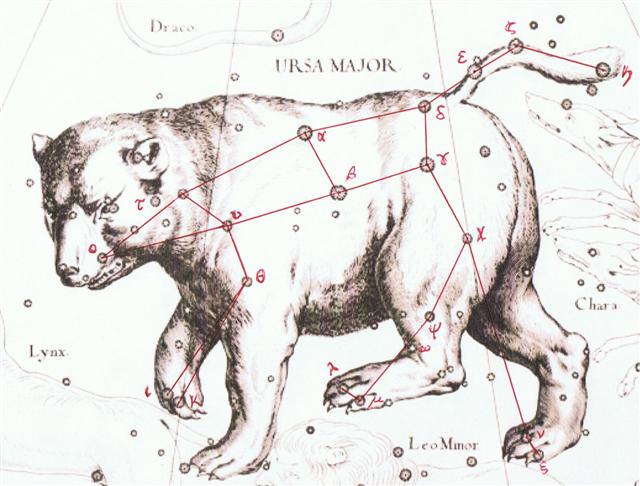 |
 |
 |
 |
 |
 |
 |
 |
 |
|
Bb5-26 |
Bb5-27 |
Bb5-28 |
Bb5-29
(192) |
Bb5-30 |
Bb5-31 |
Bb5-32 |
Bb5-33 |
|
mai tae oho te
tagata - ki to maro - e tagata ui ki to
maitaki |
ihe tamaiti |
kua hua koia |
e kua oho te rima - ki te
vai - ko te vai kua oho ki te mea maú |
ko te tagata kua
oho - ki te huaga o te poporo |
e ariki ra
|
|
Ui.
To ask. Vanaga.
Û'i.
To look, to look at (ki); e-û'i
koe! look out! Vanaga.
Ui.
1. Question, to interrogate, to ask (ue).
Uiui,
to ask questions. 2. To spy, to inspect, to
look at, to perceive;
tagata ui,
visitor. Churchill. Ma'u.
1. To carry, to transport; he-ma'u-mai,
to bring; he-ma'u-atu, to remove,
ma'u tako'a, to take away with oneself;
te tagata hau-ha'a i raro, ina ekó
ma'u-tako'a i te hauha'a o te kaiga nei ana
mate; bienes terrenales cuando muere
→ a rich
man in this world world cannot take his
earthly belongings with him when he dies. 2.
To fasten, to hold something fast, to be
firm; ku ma'u-á te veo, the nail
holds fast. 3. To contain, to hold back;
kai ma'u te tagi i roto, he could not
hold his tears back. Vanaga. |
|
Febr 3 |
4 (400) |
5 |
6 |
7 |
8 |
9 |
10 |
|
21h (319.6)
ARMUS = η Capricorni
(319.0),
DORSUM =
θ
Capricorni
(319.3),
TSOO = 24 Capricorni
(319.7) |
DRAMASA =
σ
Oct.,
χ
Capricorni (320.0),
ν
Aquarii (320.3),
γ
Equulei (320.6),
ο
Pavonis (320.8) |
α Oct. (321.5), δ
Equulei (321.7),
φ
Capricorni (321.8) |
KITALPHA (Part of a Horse) =
α
Equulei
(322.0),
ALDERAMIN (The Right Arm) = α Cephei
(322.9) |
DAI =
ι
Capricorni
(323.5),
β
Equulei (323.8) |
γ
Pavonis (324.1),
YAN =
ζ
Capricorni
(324.6) |
Al Sa'd al Su'ud-22
(Luckiest of the Lucky) /
Emptiness-11 (Rat)
TSIN = 36 Capricorni
(325.2),
ALPHIRK (The Flock) =
β
Cephei
(325.7),
SADALSUD =
β
Aquarii,
ξ
Gruis (325.9) |
No star listed (326) |
|
ν Cancri (136.0),
TALITHA AUSTRALIS = κ Ursae Majoris
(136.1), ω Hydrae (136.8) |
9h (137.0)
σ¹ Ursa Majoris (137.0), κ Cancri (137.3),
τ Cancri (137.4),
ALSUHAIL
(al Wazn, of the Weight) = λ Velorum
(137.5), σ² Ursa Majoris (137.6), τ Ursa
Majoris (137.7), ξ Cancri (137.8)
*96.0 = *137.4 - *41.4 |
κ Pyxidis (138.0), ε Pyxidis (138.5) |
π
Cancri (139.2),
MIAPLACIDUS =
β
Carinae
(139.3),
TUREIS (Little Shield) =
ι
Carinae
(139.8) |
No star listed (140) |
θ
Pyxidis (141.5),
MARKAB VELORUM =
κ
Velorum
(141.5),
AL MINHAR AL ASAD (The Nose of the Lion)
=
κ
Leonis
(141.6),
λ
Pyxidis (141.9) |
Star-25 (Horse)
/
ANA-HEU-HEU-PO-5
(Pillar where debates were held)
ALPHARD (The Horse) =
α
Hydrae
(142.3),
ω
Leonis (142.6),
τ¹
Hydrae (142.7) |
Al Tarf-7 (The End)
ψ
Velorum (143.3),
ALTERF =
λ
Leonis,
τ²
Hydrae (143.4),
ξ
Leonis (143.5)
*102.0 = *143.4 - *41.4 |
|
"June
24 |
25 |
26
(177) |
27 |
28 |
29 (180) |
30 |
"July
1 |
.jpg) |
 |
 |
 |
 |
 |
 |
 |
|
Bb5-34 |
Bb5-35 |
Bb5-36 |
Bb5-37
(200) |
Bb5-38 |
Bb5-39 |
Bb5-40
(624) |
|
e tagata oho e - ki te
mea huki ka huki - te maro |
mai tae tuki te haga |
ki te henua - mai tae
rere te toki |
ko te tagata kua oho kua
hakapura ia |
ki te henua |
kua vero te tagata |
ki te tagata hakapura i
ruga kia ia |
|
Ahi hakapura, match.
Churchill. |
|
Febr 11 (42) |
12 |
13 |
14
(200 + 210) |
15 |
16 |
17 |
|
'Jan
15 |
16
(381) |
17 |
18 (410 - 27) |
19
(384) |
20 |
21 |
|
CASTRA = ε Capricorni (327.2),
BUNDA = ξ Aquarii
(327.5)
SIRIUS (α Canis Majoris) |
Mahar sha hi-na
Shahū-26 (Western One in the Tail of the
Goat)
NASHIRA =
γ
Capricorni
(328.0),
ν
Oct. (328.3),
AZELFAFAGE =
π¹
Cygni,
κ
Capricorni (328.7) |
Arkat sha hi-na
Shahū-27 (Eastern One in the Tail of the
Goat)
ENIF (The Nose) =
ε
Pegasi, ERAKIS =
μ
Cephei
(329.2),
46 CAPRICORNI, JIH (the Sun) =
κ
Pegasi
(329.3),
ι
Piscis Austrini (329.4),
λ
Capricorni (329.6),
ν
Cephei (329.7),
DENEB ALGIEDI =
δ
Capricorni
(329.8)
*288.0 = *329.4 - *41.4 |
θ
Piscis Austrini (330.1),
λ
Oct.
(330.7) |
KUH (Weeping)
=
μ
Capricorni (331.4),
γ
Gruis (331.5)
*290.0 = *331.4 - *41.4 |
No star listed (300 + 32) |
η Piscis Austrini (333.4)
*292.0 = *333.4 - *41.4 |
|
A Hydrae (144.1)
VEGA (α Lyrae) |
Creation of our present world
UKDAH (Knot) =
ι
Hydrae (145.4),
κ
Hydrae (145.5),
SUBRA =
ο
Leonis
(145.8)
ALPHEKKA MERIDIANA
*104.0 = *145.4 - *41.4 |
5 Imix 9 Kumk'u
Rishu A.-13 (Head of
the Lion)
ψ Leonis (146.4), RAS ELASET AUSTRALIS = ε Leonis
(146.6)
*105.0 = *146.4 - *41.4 |
VATHORZ PRIOR = υ Carinae
(147.9) |
υ¹
Hydrae (148.4),
RAS ELASET BOREALIS (Northern Head of the
Lion) =
μ
Leonis
(148.7)
*107.0 = *148.4 - *41.4 |
TSEEN KE (Heaven's Record) =
φ
Velorum
(149.9) |
ν Leonis (150.1), π Leonis (150.6) |
|
"July
2 |
3
(184) |
4 |
5 |
6 |
7 |
8 |
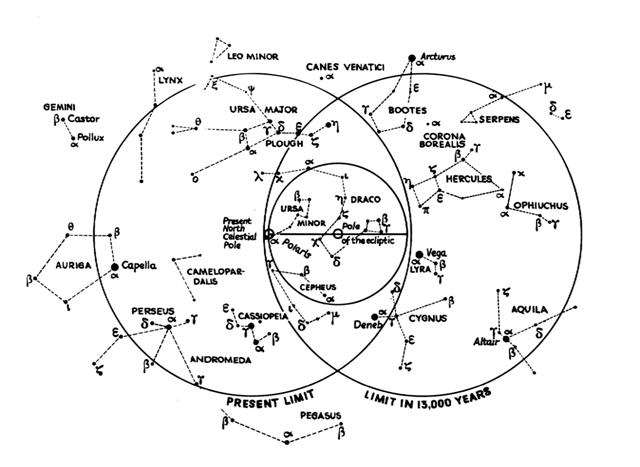 |
... In
reference to your question, 'How do the natives of
Easter Island obtain fire?' I [Mr. Croft] have to
answer that they cannot tell. Their forefathers,
like the ancient Romans, had their 'vestal' fires,
preserved from ancient times; but the 'Vestal
Virgins' of Easter Island were gray-headed and
gray-bearded old heathen priests. It was a part of
their duty, sacredly attended to, to guard the
eternal fire, which was neutral, together with its
guardians, in all wars.
From this sacred fire the whole
community - at one time a large one - could obtain
that useful 'element' from time to time, as they
needed it, for culinary and other purposes. This
custom is still kept up by a portion of the
community, while another portion rely on the matches
of Mr. Dutrou-Bornier for their supply.
Another portion of the community
have learned from Gambier Islanders (who were sent
there by the Catholics, to assist the priests) how
to make fire: not by rubbing two sticks together, as
you ask in your letter, but by rubbing the point of
one stick on the side of the other, until it makes a
hot groove and eventually fire - a work generally of
from five to ten minutes. In order to illustrate
this, I have had a photograph taken for you, showing
you the natives in the very act of producing fire,
and have also sent you the identical sticks used on
that occasion.
You will notice that the wood is
of a soft and spongy nature. It grows abundantly on
these islands, and is a variety known as the
Hibiscus tiliaceus, and called by the natives 'Purau'
and 'Fau', pronounced 'Purow' and 'Fow',
'ow' being sounded as in the word 'how'.
You can, if you wish, obtain large quantities of it,
by going on board the vessels carrying oranges from
these islands to San Francisco; the orange crates
are mostly made of it. And you could also get one of
the Tahitian or other islanders, sailors on board of
such vessels, to make fire for you by the aid of
these sticks, and thus practically or ocularly
answer your own question, as they are all
experienced in the art ...
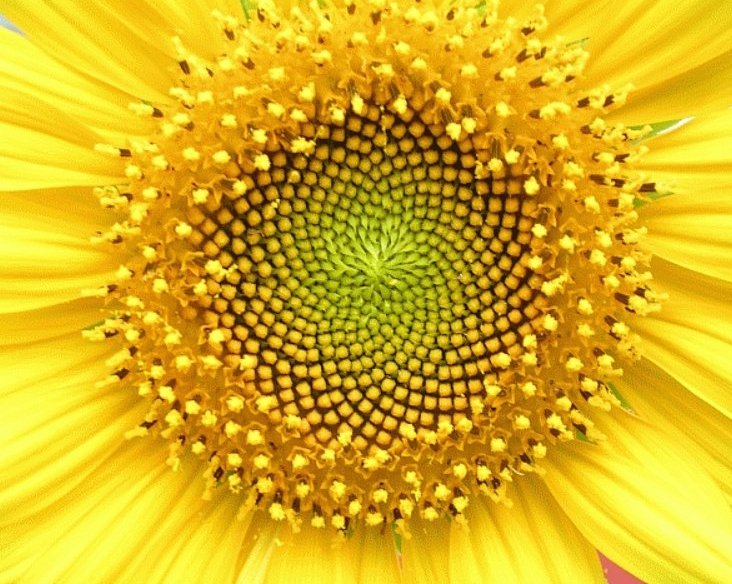
|


























.jpg)





